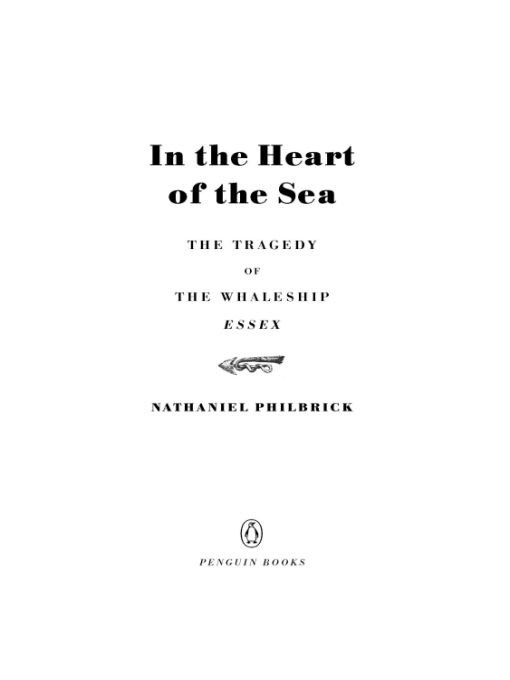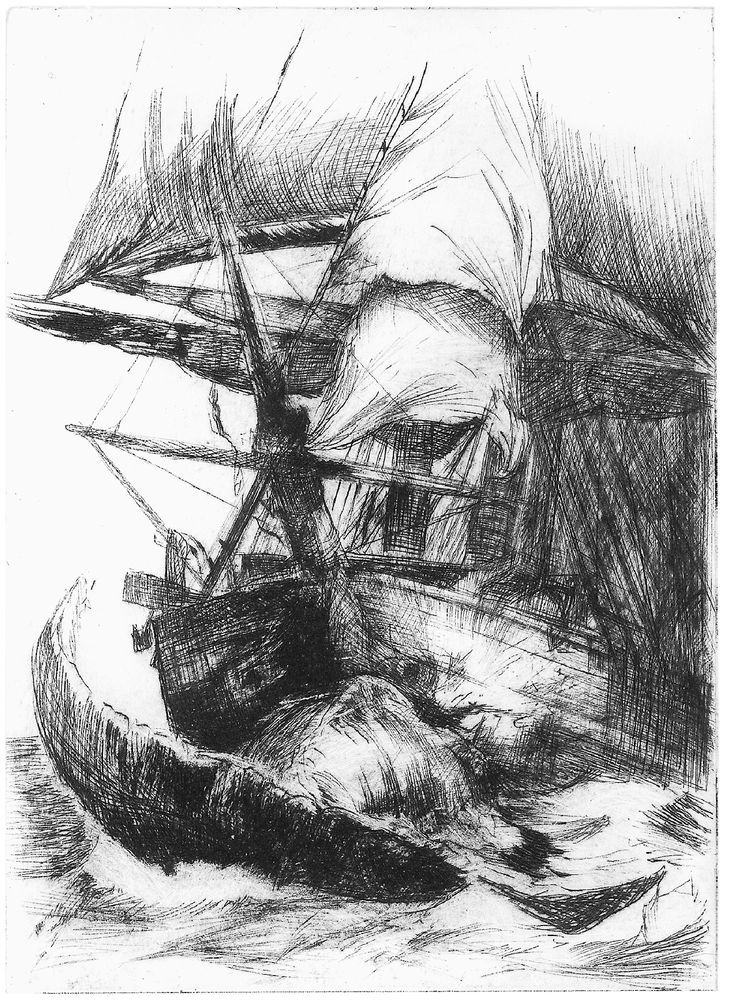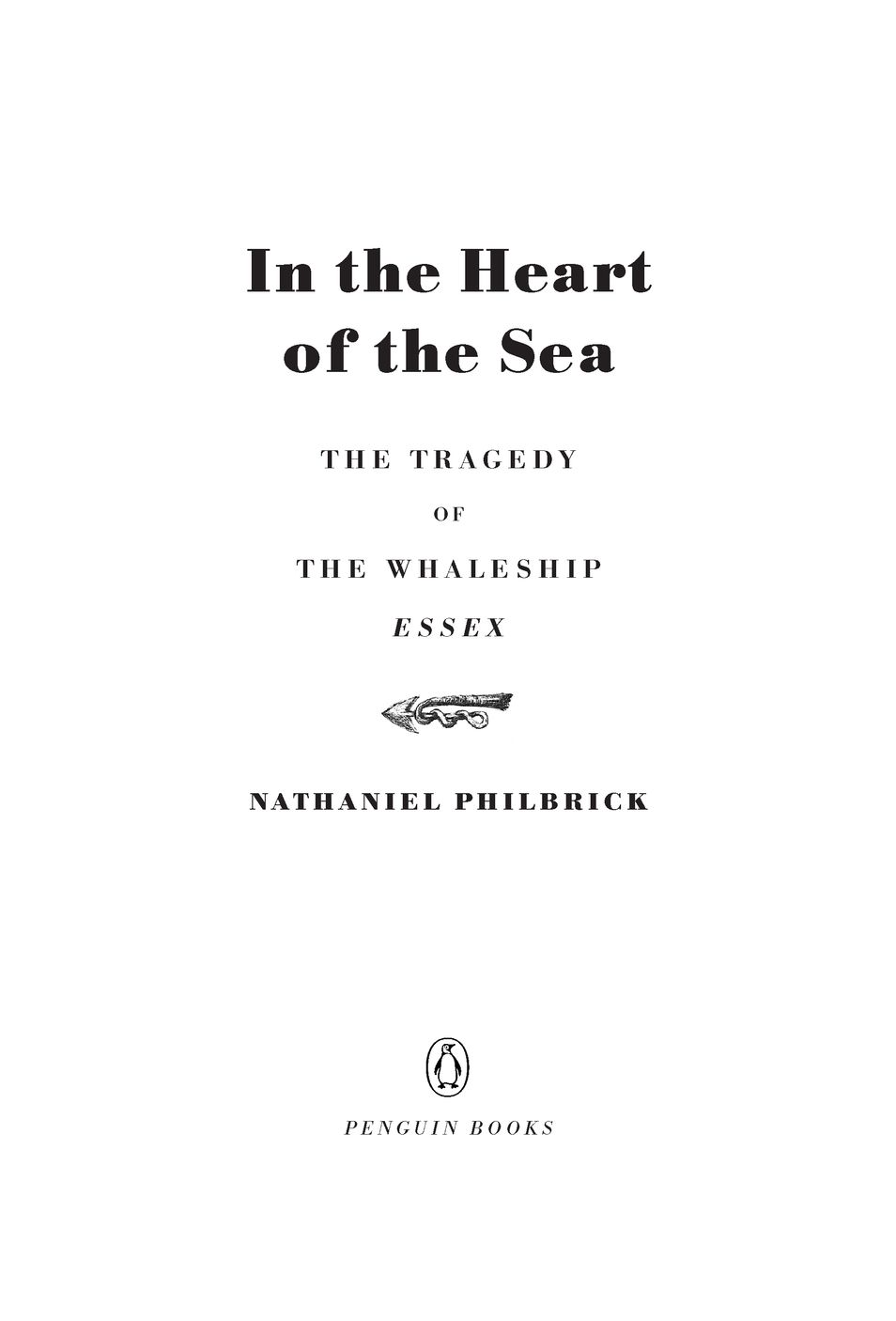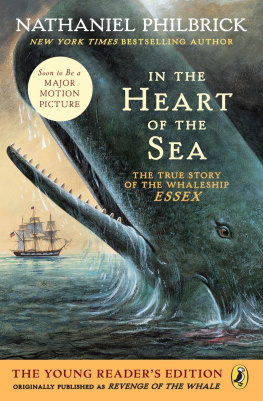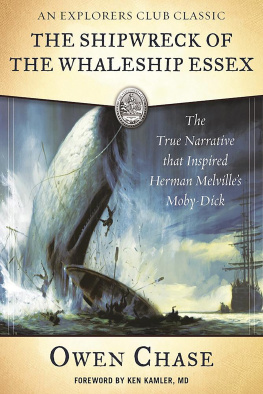Table of Contents
Praise for In the Heart of the Sea
In the Heart of the Sea brings a wrenching tale of death and destruction magnificiently to life. In addition to being an incredibly gripping tale of survival, Philbricks book is an amazingly intimate and detailed look at life aboard a nineteenth-century whaling ship. Much as Melville did in Moby-Dick, the author takes the reader and makes him part of the crew.
Atlanta Journal-Constitution
Reading of the disaster in Philbricks book, you dont wonder why Melville was captivated by it: What happened to the Essex and its men is fodder for an adventure story as nerve-wracking as the illfated expeditions that make modern bestsellers like The Perfect Storm and Into Thin Air. It is suspenseful, heartbreaking and sickening, rife with the kind of human folly and cultural hubris that allow readers to imagine how they would escape such a horrid fate, and make young novelists recklessly philosophical.
L.A. Weekly
[A] fabulously well-told story... In the Heart of the Sea turns out to be much more than just a sea story, though it would stand tall on that basis alone. And what a story. In the Heart of the Sea would have been a page-turner if it had been fiction. As a real-life adventure, its compelling and chilling from start to finish.
Wilmington News Journal
Compelling... Philbrick does an admirable job of bringing to life not only an engrossing story of endurance, but also of the whaling tradition itself. He records the crews increasingly dismal prospects for survival in a language worthy of Melvilles best foreboding prose.
The Houston Chronicle
As both a historical companion to Moby-Dick and perhaps the most thrilling sea tale of all time, In the Heart of the Sea speaks to the same issues of class, race and our relationship to nature that permeate the classic works of Melville.
Tampa Tribune & Times
If you loved Titanic and gobbled up The Perfect Storm then In the Heart of the Sea by Nathaniel Philbrick is just for you. Its a seat-of-your-pants, real life tale.... These pages rock and roll as good as any contemporary action yarn... a grand tale of derring-do, of guts and gumption and of starvation and survival... While the tale is tragic, reading about it is a voyage thats well worth taking.
New York Post
Both historically thoughtful and highly entertaining... he weaves a fascinating discussion of Nantuckets history into the Essex drama.
Pittsburgh Gazette
A splendid yarn.
The Orlando Sentinel
Mesmerizing... a story even sweeps week would find hard to top... [this] is one book you wouldnt vote off a deserted island.
Rocky Mountain News
This is heady stuff, a surefire formula for an engrossing book... much more than another disaster story tailored to the interests of prurient readers. Accompanied by helpful maps, ample notes, a bibliography and index, its a work of masterful scholarship that never intrudes on the high adventure quotient of the narrative.
Raleigh News & Observer
A superbly written, tension-filled book... Whether as a brilliant follow-up to Moby-Dick or as an exciting and harrowing sea story all its own, this is an epic that deserves classic status.
Parade
Nathaniel Philbricks admirable telling of the Essex story gains its power from his adherence to the simple brutal facts... all this Philbrick shows with a clarity and an economy that in no way slows his narrative, but lends it an awful, mounting inexorability... [told] with verve and authenticity, sure to become again what it has been from its earliest whisperingsa classic tale of the sea.
San Francisco Chronicle
PENGUIN BOOKS
IN THE HEART OF THE SEA
Nathaniel Philbrick is the author of Mayflower: A Story of Courage, Community, and War and Sea of Glory: The Epic South Seas Expedition, 1838-1842, winner of the Theodore and Franklin D. Roosevelt Naval History Prize. Since 1986 he has lived on Nantucket Island.
To request Penguin Readers Guides by mail
(while supplies last), please call (800) 778-6425
or e-mail reading@us.penguingroup.com.
To access Penguin Readers Guides online, visit our
Web site at www.penguin.com.
To Melissa
And in the greatness of thine excellency thou has overthrown them that rose up against thee: Thou sentest forth thy wrath, which consumed them as stubble. And with the blast of thy nostrils the waters were gathered together, the floods stood upright as a heap, and the depths were congealed in the heart of the sea.
EXODUS 15:7-8
This is the end of the whaleroad and the whale
Who spewed Nantucket bones in the thrashed swell....
This is the end of running on the waves;
We are poured out like water. Who will dance
The mast-lashed master of Leviathans
Up from this field of Quakers in their unstoned graves?
ROBERT LOWELL,
The Quaker Graveyard in Nantucket
PREFACE
February 23, 1821
LIKE A GIANT BIRD of prey, the whaleship moved lazily up the western coast of South America, zigging and zagging across a living sea of oil. For that was the Pacific Ocean in 1821, a vast field of warm-blooded oil deposits known as sperm whales.
Harvesting sperm whalesthe largest toothed whales in existencewas no easy matter. Six men would set out from the ship in a small boat, row up to their quarry, harpoon it, then attempt to stab it to death with a lance. The sixty-ton creature could destroy the whaleboat with a flick of its tail, throwing the men into the cold ocean water, often miles from the ship.
Then came the prodigious task of transforming a dead whale into oil: ripping off its blubber, chopping it up, and boiling it into the high-grade oil that lit the streets and lubricated the machines of the Industrial Age. That all of this was conducted on the limitless Pacific Ocean meant that the whalemen of the early nineteenth century were not merely seagoing hunters and factory workers but also explorers, pushing out farther and farther into a scarcely charted wilderness larger than all the earths landmasses combined.
For more than a century, the headquarters of this global oil business had been a little island called Nantucket, twenty-four miles off the coast of southern New England. One of the defining paradoxes of Nantuckets whalemen was that many of them were Quakers, a religious sect stoically dedicated to pacifism, at least when it came to the human race. Combining rigid self-control with an almost holy sense of mission, these were what Herman Melville would call Quakers with a vengeance.
It was a Nantucket whaleship, the Dauphin, just a few months into what would be a three-year voyage, that was making her way up the Chilean coast. And on that February morning in 1821, the lookout saw something unusuala boat, impossibly small for the open sea, bobbing on the swells. The ships captain, the thirty-seven-year-old Zimri Coffin, trained his spyglass on the mysterious craft with keen curiosity.

